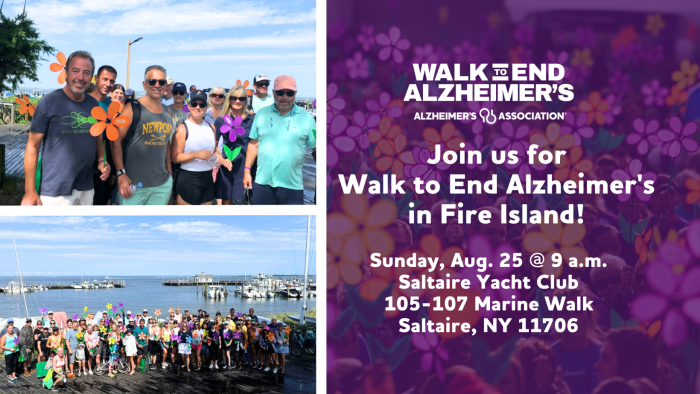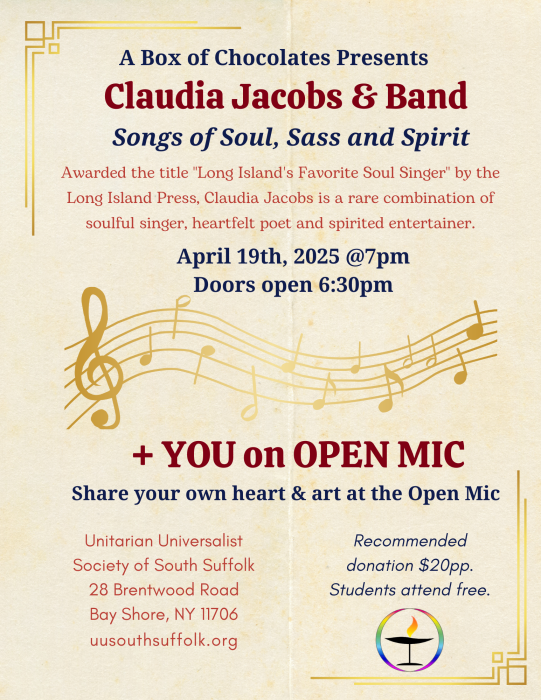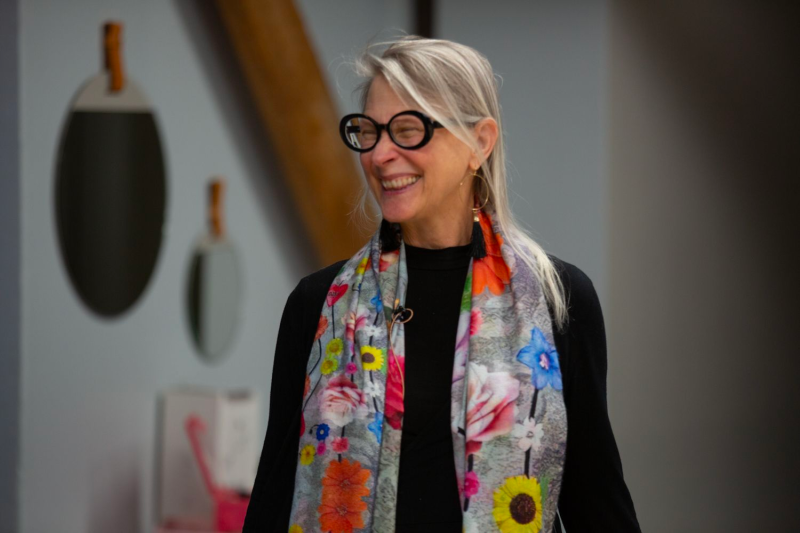Rev. Dr. Benjamin James Brenkert joined St. Anne’s Episcopal Church in Sayville as a transitional deacon in June 2024. He was ordained as a Priest in the Episcopal Church on September 14, 2024. He shared his story with Great South Bay News shortly after.
Great South Bay News (GSBN): You’ve had a journey that brought you to this place in this church, and you describe it in a book you wrote.
Reverend Benjamin Brenkert (RBB): I do, yes, and I describe it in my memoir, The Catechism of the Heart. It is my story about where I come from, the Roman Catholic Church, and spending nearly 10 years in the Jesuits, the Society of Jesus, and the Order of Pope Francis. I consider it a discernment book to help people discern membership in the church they belong to and see whether or not it is giving them life. If it’s not giving them life, I hope my book can help them find someplace that offers them life.
GSBN: From what I know of you, it seems you have; you’re working to create a safe space for worship on South Shore Long Island for all lifestyles and at a place of inclusivity during the short time you’ve been with St. Anna’s. Has the Episcopal Diocese been supportive of all that?
RBB: Yes. That is such an important point. I did the ecumenical service, let’s call it an ecumenical service, at Fire Island for Trans Awareness Day. All I did was be there and be present and offer a prayer. So many people came up to me afterward, and they were so appreciative and thankful. Some of them were in tears. That’s a huge thing because it tells me that so much isn’t being done correctly to provide for an inclusive, all-loving God where everyone is together. It was both heartening and disheartening to know that just a simple prayer with words that include love for all and remembrance can move people in 2024 and that we are still struggling to find the right place. People are hungry for a spiritual life. They’re hungry for a community that welcomes them fully. The Episcopal Church wants to affirm its belief in the value of all people and to be an inclusive place where people can become members, worship, and find their spiritual community.
GSBN: Can you tell me more about the experiences and challenges that LBGTQ+ South Shore Long Island members within your congregation face and how they may differ from those on Fire Island?
RBB: In terms of St. Ann’s, we don’t want to see Fire Island as a ministry of St. Ann’s. We want to see both as part of the same parish. The idea is to let people know that St. Anne’s on the beach and the Main Island is still the same home and to welcome them. What happens on Fire Island during the summer is that it’s a huge vacation spot for Americans and the world. So, we’re trying to expand the ministry there to touch more people’s lives. When you walk around Cherry Grove or Fire Island Pines, and you see the advertisements for the Sunday worship on the little billboards, the idea is that it’s inclusive and that people will come. I want to expand outreach because we can find what people are asking for. There’s a lot of potential for doing different types of programming. I view Fire Island and St. Anne’s as one ministry, opportunity, and family.
GSBN: When I went to the Cherry Grove service on Labor Day weekend, Bishop Matthew Heyd spoke to the congregation about divisiveness during election season. Do you wish to elaborate on that?
RBB: I can’t speak for him, but I can tell you that the Episcopal Church is doing a lot of work right now. We’re doing a lot of work on listening, communicating, and being partners in dialogue with people who disagree or agree. There is a tremendous amount of divisiveness and enormous volatility in the world. It’s almost as if the world is hanging on a string. The world can go in one way or the other. The Episcopal Church wants its clergy to be active listeners, not passing judgment and hopefully extending the dialogue into more conversations but also moving people to a place of mutual respect. Bishop Michael Curry always talks about love, agape love, and beloved community. We’re at this inflection point, and the Episcopal Church hopes to move people closer to the beloved community.
GSBN: We just passed the first anniversary on October 7th. Please speak candidly about your thoughts about what’s going on in the world right now and what the path forward might be.
RBB: As I said before, we are at an inflection point. The world will either get hotter or cool off. Everyone has a role to play; if we can see each other as dialogue partners, that’s a starting place. We have to find a way to get together again. We have to come to that table before we can even dialogue. This is a time to rely on faith, the tools of our faith, whether prayer or worshiping communion. Or even as Father Jeff Stevenson said last week, go to another parish, go to another faith, dig into that faith, and spend time with the people of that faith. You’ll see them as your neighbors and the opportunity for growth comes from that. Because if we don’t grow, nothing can get better.
GSBN: How are your parishioners in Sayville faring after the October 25 fire?
RBB: I think the community is hurting but strong.
GSBN: What do you aspire to achieve for St. Ann’s? What do you hope to accomplish in the community within your church?
RBB: My first hope is to become or continue to be a good and joyful priest. From there, I hope to strengthen the Fire Island ministry. I also want to grow the youth and young adult ministry at St. Ann’s. I hope to participate in worship and collaborate with all the wonderful people who come here and make this place even more vigorous and life-giving; I want to see more ecumenical things that we can participate in. There must be some things we can do with our partners of different faiths. For instance, I saw the Rosh Hashanah celebration at Kismet, and next year, that would be something I’d like to be part of. We all have to be one big family from different tents.
GSBN: Okay, I have to ask… I’ve never seen a priest with so many piercings and tattoos. At what stage did those come along?
RBB: Over the years, I got different tattoos for different reasons. This tattoo is St. Ignatius of Loyola, the founder of the Jesuits, of which I was a member of the Society of Jesus. It reminds me of where I come from and how important that part of my life was. I have this little Franciscan tattoo. He reminds me of my vows as a Jesuit: poverty, chastity, and obedience. This tattoo of two chickens is something that I got after my mother passed away in 2019. Her last name is Gallo, which means rooster and Italian. I also have a swan tattoo. Swans became significant to me during my 30-day retreat with St. Ignatius of Loyola. It was a silent retreat with no email, mail, internet, or television, with four to five hours of prayer daily. During that time, I would see the swans at a nearby pond. Around the swans were always ducks, but all the ducks would scatter while the swans would come right up to me. What I observed about them was the metaphor for God. God wants us to draw close. God is not going to scatter. God will invite us to be close to feed and be fed.
GSBN: From your Instagram account, I see there’s a particular gentleman who is always nearby.
RBB: Yes, that’s Willie, my husband! We married during Covid. Willie is from El Salvador. He is going for his nursing degree, and just a couple of days ago, after three years of waiting, we made some progress in our immigration case. We applied in 2021, and it’s taken a lot of time and hard work. It would be something if we brought an El Salvadorian flavor to St. Anne’s. Over time, maybe we could work with some of the migrants living in this area and draw people here who speak Spanish.
GSBN: Ben, is there anything else you wish to discuss in this interview that my questions haven’t touched on?
RBB: No, I want to be available to those who want to come. If anybody wants to go, call me and make an appointment. We’ll discuss anything from El Salvadorian cuisine to God, the Trinity, the Eucharist, and making Long Island more inclusive. We can do that here in Sayville or on Fire Island.


























